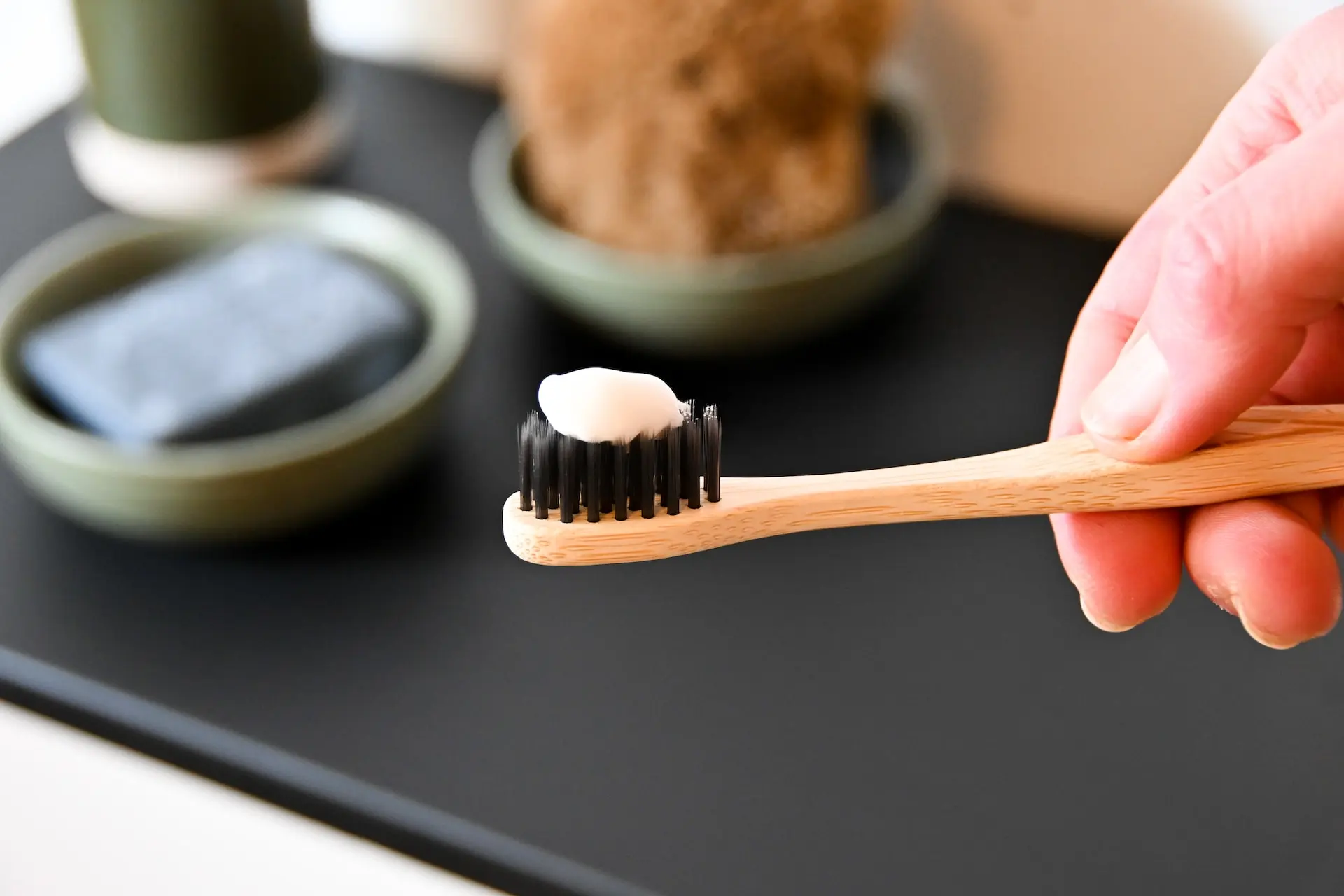Natural Remedies • 03/04/2024
Homemade Toothpaste: What Should You Add?

Revivalist is a reader-supported endeavor and our posts may contain affiliate links. When you buy through links on our site, we may earn an affiliate commission.
Making hygiene items at home instead of buying them can bring many benefits, but it all depends on the ingredients you add. When it comes to products like homemade toothpaste, you must look at each element carefully to know whether you’re mixing in the right components for your teeth and gums.
Should You Use Homemade Toothpaste?
The first question to ask before making homemade toothpaste is why you should make it at all. You can get various items at the grocer or convenience store, so why should you go to such lengths to make your own?
The main motivation for utilizing homemade toothpaste is to lower your carbon footprint. Around 260 million toothpaste tubes go to the landfill and are unrecyclable. Since this item is still a necessity, it prompted the possibility of alternatives that would reduce the waste.
Another reason homemade toothpaste seems more appealing is having control over the ingredients. Some store-bought variations may have paraben preservatives and artificial sweeteners, which may harm your teeth.
Making Toothpaste Yourself
There are multiple ways to make homemade toothpaste, depending on your recipe. Most toothpastes on the market contain around 40% water, while the rest consist of more abrasive ingredients for cleaning and tooth-whitening.
One factor to keep in mind when DIYing toothpaste is consistency. A formula that is too wet or dry may not result in the desired effectiveness. One that’s too grainy may be bad for your enamel — the natural protective coating on your teeth.
It’s best to aim for a paste-like consistency that can remove bacteria and leftover food chunks from your teeth and gums. A small food processor should do the trick in combining your ingredients once you’ve finally chosen what to include.
Ingredients for Homemade Toothpaste
The ingredients you put into your toothpaste will determine whether its effectiveness. There are multiple components different homemade toothpaste recipes will endorse, but will they actually be good for your teeth?
1. Glycerin
You may have noticed the term glycerin if you read the ingredient list of some of your favorite candies and beverages. This is a sugar alcohol that keeps liquid-based products from drying out, which makes it prominent in cough syrups and ointments.
For homemade toothpaste, glycerin can help improve the texture and bind the rest of the ingredients together. It doesn’t help remove bacteria, so adding abrasives is essential.
2. Bentonite Clay
Bentonite clay is usually utilized in skin and hair masks, mixed with water to detox those areas of your body. Homemade toothpastes also use bentonite clay for many reasons, primarily to thicken the consistency of your mixture.
Unlike glycerin — which only contributes to texture — bentonite clay can help clean teeth. Its detoxification properties can bind to the other bacteria in your mouth and help remove them, leaving behind trace amounts of minerals such as iron and zinc.
3. Coconut Oil
Coconut oil is one of the most popular ingredients when making DIY toothpaste, potentially for good reason. Coconut oil decreases the possibility of plaque formation and gingivitis through oil-pulling.
Oil pulling is a medical remedy where a person gargles the liquid to pull out bacteria, spitting it out afterward. Picture swishing mouthwash but using edible oil. Putting coconut oil in your homemade toothpaste can make it more effective at reducing bacteria.
4. Calcium Carbonate
When you think of calcium, you think of healthy bone structure and teeth. Calcium carbonate is a little different, though, as it’s used more as an antiacid in medication that relieves heartburn and stomachaches.
Is it still worth putting calcium carbonate in your homemade toothpaste mixture? The component contains 40% elemental calcium, which can strengthen your teeth. It can also help firm up your toothpaste.

5. Xylitol
If a homemade toothpaste recipe excludes glycerin, it likely has xylitol as a substitute. This is also a sugar alcohol that can sweeten up your mixture, appearing as a component in chewing gum most of the time. While there’s debate on whether or not gum is good for your teeth, using xylitol can offer antimicrobial properties and help with saliva production thanks to its flavor.
6. Baking Soda
Baking soda serves as a thickening agent in baking. It’s also alkaline, which can help fight tooth cavities. However, a large amount of baking soda can reduce the calcium content of your toothpaste due to how it reacts with acid. It can additionally be too abrasive when you add too much, so getting the proportions right is necessary.
7. Sea Salt
Sea salt comes from the saltwater of seas and lakes, often appearing in thicker granules than regular table salt. The tiny crystals are often utilized as a skin scrub since they offer gentle exfoliation, but they also work well in removing bacteria. Like baking soda, measuring the amount of salt in your homemade toothpaste mixture is essential to avoid too much abrasion.
8. Activated Charcoal
A variety of toothpaste brands have popularized activated charcoal, claiming it helps naturally whiten teeth. Integrating it in your DIY mixture can also be good since it does help remove apparent surface stains on your teeth. However, those with more sensitive teeth and pearly whites should be wary of this ingredient since it can wear out your enamel.
9. Vinegar
Vinegar is an ingredient that can do it all, from serving as a natural cleaning solution to improving the tanginess of your salad dressing. Including it in your toothpaste solution might not be the best move, though. While it can break down plaque and bacteria on your tooth, it may also weaken your enamel.
10. Hydrogen Peroxide
Hydrogen peroxide is praised as an effective teeth-whitening agent, along with citric acid in commercial toothpaste. It’s best to eliminate this part in your homemade toothpaste recipe, as it can reveal and reduce dentin after exposure.
11. Essential Oils
Coconut oil does wonders in improving your homemade toothpaste. However, other oils like lavender, tea tree and lemon should be left out. Various essential oils may contain antibacterial properties, which cannot distinguish good from harmful bacteria.
Make Natural Homemade Toothpaste Today
Making toothpaste yourself can help you feel more secure about your oral hygiene since you’re custom-making the solution. Remember the information above as you pick out the right ingredients for you.
Subscribe to Our Weekly Newsletter
We would love to connect deeper with you!


